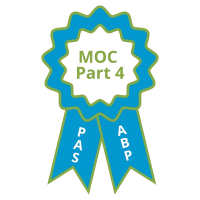Breastfeeding/Human Milk Works in Progress
Session: Breastfeeding/Human Milk Works in Progress
WIP 40 - More Mother's Own Milk: A QI Project to Improve Breast Milk at Discharge in UIH Neonatal ICU & Mother/Baby Units
Monday, April 28, 2025
7:00am - 9:15am HST
Publication Number: WIP 40.7711
Preeti Gupta, Children's Hospital of the University of Illinois, Chicago, IL, United States; Mayra A. Matar, Children's Hospital of the University of Illinois, Chicago, IL, United States; Amy Pham, Children's Hospital of the University of Illinois, Chicago, IL, United States; Denise Flores, UI Health, Chicago, IL, United States
.jpg)
Mayra Matar, DO
Resident Physician
University of Illinois Chicago
Chicago, Illinois, United States
WIP Poster Presenter(s)
Background: There is strong evidence that breast milk provides crucial health benefits for both infants and mothers. The AAP recommends exclusive breastfeeding for the first 6 months of life. However, many mothers encounter significant challenges, making it difficult to achieve this goal. As healthcare providers, we play a vital role in addressing these challenges, but there are often gaps in both the necessary training and in patient education to effectively support breastfeeding mothers.
Objective: This quality improvement project seeks to increase breast milk feeding rates at discharge through comprehensive staff and patient education, enhanced medical knowledge, and dedicated lactation support.
Design/Methods: Following IRB review and approval (IRB Study 2024-0377) we used the Plan-Do-Study-Act approach targeting staff education, interdepartmental collaboration, and patient resources. Interventions included decision making tree on golden hour practices, promoting skin-to-skin contact, and hand expression (Figure 1). Residents received breastfeeding education and patients received “myths vs facts” sheets to enhance knowledge. Lactation support was expanded in NICU and postpartum units and a breast pump loaner program was introduced. Monthly breastfeeding rates at discharge are tracked to assess impact. The primary outcome was the percentage of infants discharged with any breast milk feeding, measured pre- and post-intervention. Baseline data was initially collected starting in January 2024. Inventions were then implemented starting in March 2024, with ongoing data collection expected to be completed by March 2025. Data analysis plan will involve using chi-square tests for trends over time to assess statistically significant changes.


